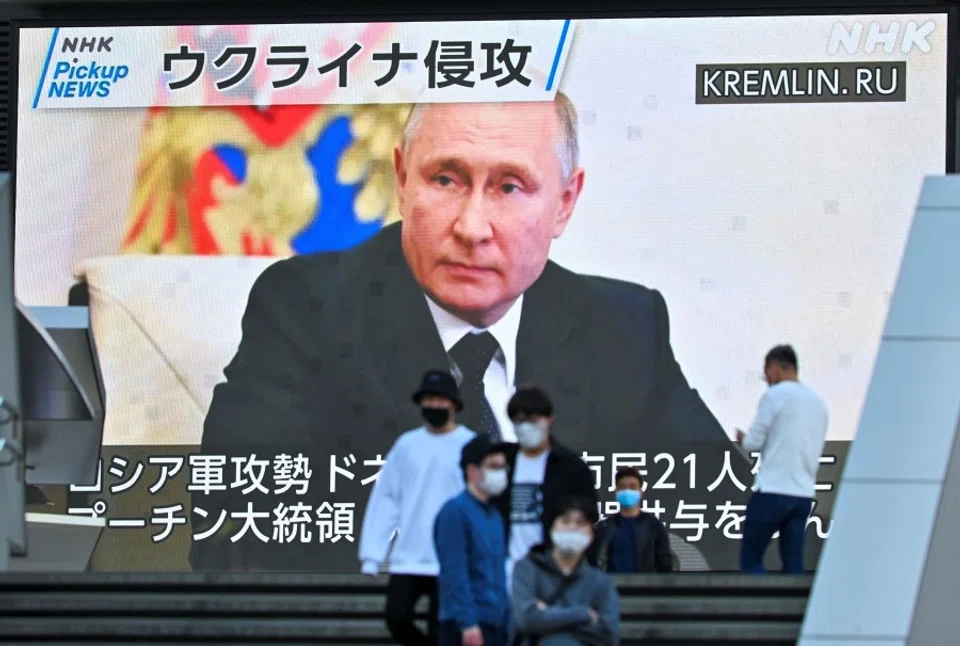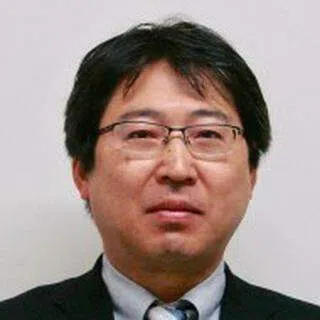Japanese academic: Japan views China and Russia as one entity because of Russia-Ukraine war
Japanese Prime Minister Fumio Kishida has been reiterating lately that "unilateral changes to the status quo by force are absolutely unacceptable". Japanese academic Shin Kawashima points out that this stems from Japanese fears that if the global order is not maintained, Japan will face a security crisis, particularly in the East China Sea. Furthermore, in dealing with this perceived threat from China, Japan has come to view China and Russia as one entity. But is this a wise long-term policy?

The Japanese government has adopted what may be considered an unusual policy on the Ukraine war. Of course, Japan remains committed to its pacifist constitution, yet it has acted decisively, for example by aligning with the G7's sanctions against Russia.
Prime Minister Fumio Kishida clarified this position on 16 March, saying, "The recent outrageous violence by Russia is an inhumane act that should be inscribed in history. Japan resolutely censures Russia's acts. [...] Japan, acting in coordination with the United States and Europe and also with the G7, will be flexible in imposing stringent sanctions against Russia."
The Japanese government has often been more passive with sanctions and other measures compared to other advanced countries, so why has it adopted such a clear and decisive position this time?
Firstly, is it because this Ukraine war is perceived as something that may greatly change the world and as such, this is an effort to defend the existing order?
Addressing this factor, Kishida warned in his remarks at the graduation ceremony of the National Defense Academy on 27 March that "the foundation of the international order, built by the international community atop determined efforts and numerous sacrifices over a great many years, is now threatened [by Russia's recent aggression against Ukraine]".
He further said on 11 April, "Escalation and extended conflict are very possible. The world is standing at a crossroads between order and chaos." These statements reveal a sense of crisis that the existing global order is at risk.
Evidently, the interpretation of "unilaterally change the status quo by force" which pertains to Russia can also be applied in the East China Sea, and in that context, they would have China in mind.

Secondly, "unilateral changes to the status quo by force are absolutely unacceptable" is a phrase often uttered by Kishida. He has been saying this since February, including at meetings with various country leaders.
During a visit to India in March, Kishida and Prime Minister Narendra Modi agreed that any attempt to unilaterally change the status quo by force was unacceptable not only in the Indo-Pacific but also in any region, and a peaceful resolution based on international law must be sought.
Likewise, at a meeting with New Zealand Prime Minister Jacinda Ardern in Tokyo in April, the two agreed to work together to oppose any unilateral changes to the status quo by force. However, their joint statement went further, saying, "The two leaders expressed serious concerns about the situation in the East China Sea, which undermines regional peace and stability. They shared the intention to remain in close communication about the situation in the East China Sea and expressed strong opposition to any unilateral actions that seek to alter the status quo by force and increase tensions in the area."
Evidently, the interpretation of "unilaterally change the status quo by force" which pertains to Russia can also be applied in the East China Sea, and in that context, they would have China in mind.
...if they allow Russia to "unilaterally change the status quo by force" in the Ukraine war, then the existing world order will face a crisis...
The Japanese government is thinking that if they allow Russia to "unilaterally change the status quo by force" in the Ukraine war, then the existing world order will face a crisis as it will become permissible to "unilaterally change the status quo by force" in East Asia, the West Pacific, and the Indo-Pacific as well.
The phrase "unilaterally change the status quo by force" is one that triggers diplomatic action aimed at both Russia and China. What is important here is that the Japanese government foresees that if the world allows countries to change the rules by force, there will be a crisis in the security environment around Japan in East Asia, particularly the area around Japan or the spaces of the West Pacific and the Indo-Pacific.
In short, they fear a similar fate as Ukraine might befall the Indo-Pacific region, and that is why they are doing whatever Japan can muster to prevent it.
The Kishida administration appears not to want to differentiate between the two countries, but rather has a tendency to view China and Russia as one entity.

During the Abe administration, Japan treated neither China nor Russia as "an enemy" while deliberately applying different policies in its relations with each of them.
The Kishida administration, however, appears not to want to differentiate between the two countries, but rather has a tendency to view China and Russia as one entity.
However, even if this position can enjoy great domestic support so long as the Ukraine war continues, what will happen once the war comes to an end? We should not ignore the possibility that it might become necessary to adopt a policy of differentiating between China and Russia once again.
Related: Lessons from Ukraine: Is it time to give up strategic ambiguity in the Taiwan Strait? | Russia-Ukraine war: Implications for China and the Indo-Pacific | The Russia-Ukraine war has accentuated the democratic-autocratic divideLessons from Russia-Ukraine war: The UN of 1945 must be reformed | What explains Southeast Asia's trust in Japan?





![[Photos] Fact versus fiction: The portrayal of WWII anti-Japanese martyrs in Taiwan](https://cassette.sphdigital.com.sg/image/thinkchina/3494f8bd481870f7c65b881fd21a3fd733f573f23232376e39c532a2c7593cbc)